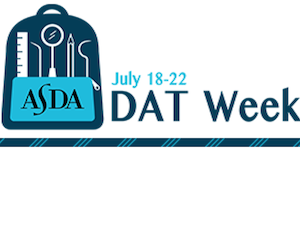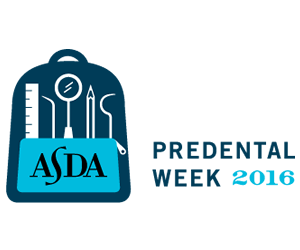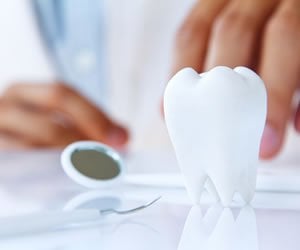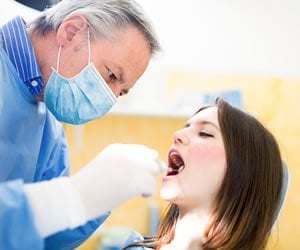Consider these three questions. First, what is a loan? Second, how is it typically is structured? Third, do you know how much you will be paying back if you borrowed x amount? I always wished someone had personally educated me and answered these very questions.
It has been almost 20 years since I chose my college (an expensive one), and almost 10 since I made my decision to pursue a career in pharmacy (a smarter choice, but still expensive one). I consider myself fortunate because my profession (for the most part) allows me to pay back the student loan I have accumulated and still enjoy a lifestyle I had imagined.
Dental
Conquering Organic Chemistry
Organic Chemistry is a hurdle every premed must undertake. For many, it can dissuade you from pursuing your dreams of becoming a physician. This guide is here to prevent that, and instead help you come to terms with the beast commonly referred to as “orgo” or “ochem.”
First and foremost, let’s debunk a couple myths surrounding the subject.
Managing Anxiety on Test Day
Taking the MCAT can be a nerve-wracking experience. In fact, many students develop significant test anxiety as a result of the MCAT’s role in the medical school admissions process. If this scenario describes you, here are several tips to help you successfully manage this anxiety:
1. Review difficult details and concepts on your test day
As you study for the MCAT, proactively compile a list of those details and concepts that you consistently struggle to understand. On the morning of your exam, wake up an hour early to review this list. This can help you refresh your memory and begin the MCAT in a much calmer mood.
Managing Bipolar Disorder in Medical School
Two days before interviewing at the medical school I now attend, I couldn’t get out of bed. At the nadir of my eighth major depressive episode in eight years, I seriously considered whether I could make the trip. Thankfully, I did. And thankfully, six days after that interview I met the psychiatrist who would finally piece together my long and steadily worsening psychiatric history.
I sat in his office, quiet and dulled compared to my spring and summer self, and began recounting my story – the weightiness of my current depression, the semester in college marked by a mere two to four hours of sleep a night (“insomnia” according to my doctor then), and the clockwork nature of my mood changes each year. Within ten minutes, he stopped me mid-sentence and said, almost casually, “You know, you show a lot of signs of bipolar disorder.”
My Top 5 DAT Study Tips
This article originally ran on ASDA’s blog, Mouthing Off, on Feb. 3, 2016. ASDA encourages all predentals to join us in celebrating DAT Week 2016 and becoming a member of the association.
Remember studying for the SATs? Or maybe you don’t because you didn’t need to. Now we’re older and smarter, and have made the decision to pursue dentistry as a career. With that though comes its own set of preparation, most notably the Dental Admission Test (DAT). This past summer, I prepped and took the DAT. This exam is certainly no SAT, and anyone who’s set on taking it has to prepare. In my preparations for the DAT, I acquired some helpful strategies and tips that I have compiled into five simple steps to help you succeed on the DAT.
Breaking the Glass Ceiling: Students With Disabilities in Medical School
Updated December 1, 2021. The article was updated to correct minor grammatical errors and to … Read more
The One Letter to Rule Them All
As an undergrad, one of the reasons you devoted so much time to a research experience was to earn an epic letter of recommendation–one that speaks to your strengths, resilience, character, self-reliance, cultural competencies, ability to solve problems, and contribute to a group effort. This letter will be a comprehensive endorsement of your medical school application complete with specific examples that influenced your PI’s opinion. This one letter has the potential to outweigh all other letters from a professor whose class you attended, or from someone who oversaw a volunteer program you participated in for a semester.
Chronicles of a Med Student: All Aboard the Financial Struggle Bus
I remember the sheer joy of ripping open the letter that granted me a medical school spot. Everything was roses and rainbows, and I was thrilled that my dreams were coming true. This cute little fantasy carried on until I received the tuition numbers a few weeks later . . . wow. I had no money, and I was being expected to pay how much? Regardless of what you hear from other people about how doctors make enough money to quickly pay back their debt, those five digits after the dollar sign per year are still scary.
How To Overcome Adversity in Professional School
After coming home from a long day at the library studying for my cardiology exam, I get a phone call from my sister. “Hey,” she said. “Grandmother is in the hospital. Can you come home this weekend?” Great, I thought. Not this again.
I was barely beginning to cope with the loss of my dad over eight years ago, and barely staying afloat in medical school because of it. I had failed my first medical course, anatomy, during my first year and just spent a tough summer trying to remediate it, as my other friends went off traveling or spending time at home with their families. Now, my grandmother was a piece of my childhood that I was about to lose and I had no idea how to prepare for it.
Study Smarter, Not Harder
Occasionally when I am browsing the online forums on SDN, I come across an unfortunate statement like this: “I studied so hard for my chemistry final and did horrible.” I’ve come across this problem for classes other than chemistry as well. A lot of people say they studied hard, but did they really? Until I really understood the other principles of studying, I didn’t realize that there is a lot more than just the act itself.
Some of the variables I’ve been able to come up with that impact studying are sometimes things we don’t analyze. A couple examples are sleep patterns, intrinsic motivation, breaks, contacting your professor, repetitive intervals, studying like it’s your job, remembering the ultimate goal and of course having fun when your not studying. I personally have to constantly remind myself to remain vigilant of everything I do and how it will impact my studying. Just remember that every test counts, so make the best possible outcome for yourself by following some of these tips.
A Timeline For Your Ultimate Predental Experience
This article originally ran on ASDA’s blog, Mouthing Off, on Dec. 2, 2015. ASDA encourages all predentals to join us in celebrating Predental Week 2016 Feb. 21-27 and becoming a member of the association.
Yesterday was dental school acceptance day – the first day that dental schools start extending offers. If you aren’t quite at the point where you’re checking the mail for your acceptance letter, here are some tips on creating a compelling application.
There are endless opportunities available for predental students to enhance their applications. Most students are aware of the basic elements needed for applying to dental school: a great GPA, a high score on the Dental Admission Test, dental shadowing hours. These components are surely respected, but there are also other avenues available to leverage your experiences. It is important to discover, participate in, and highlight all potential prospects during your undergraduate career. As an enthusiastic predental student embarking on your journey toward the application and acceptance process, here are several recommendations to consider:
Dental school the second time around: An IDP student perspective
This article is reprinted with permission from the American Student Dental Association. It originally appeared in the Summer 2015 issue of Mouth.
Each year, dental schools across the United States graduate students who were already dentists. Coming from different backgrounds and nations, we are termed IDP, or International Dentist Program, graduates. ID Programs in the U.S. are one of the most incorporating and intensive dental programs around the globe. However, the realization of second graduation involves a different set of struggles that the traditional dental student might not be aware of.
Making a first impression on your patients
This article is reprinted with permission from the American Student Dental Association. It originally appeared in February 2015 issue of ASDA News.
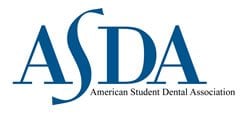
Many are quick to judge those they meet, including dentists, based solely on what they see. These initial opinions can be hard to change. Non-verbal aspects like hairstyle, clothing, posture and jewelry are often used when developing these early judgments. Some studies show that people trust appearance cues more than actual information about a person. As dentists, it is important to recognize that patients may draw conclusions about us based solely on that first interaction. What we wear to the office that day could help or hurt our patient-doctor relationships.
Dentists’ office-wear in the United States can range from conventional to casual. If a dentist is employed by another, the owner of the practice will likely dictate acceptable attire. But when self-employed, you make the decision. Some dentists prefer the relaxed ease of scrubs. Others prefer a coat and tie. Most traditional for dentists is the time-honored white coat over classic business wear, while dental assistants and dental hygienists typically wear scrubs. Over time, American dress has become more casual, however, patients can still hold onto their own expectations of professionalism when it comes to their doctors.
Refuse To Take No For An Answer: How I Got Into Dental School After 6 Tries
By Travis Barr, DDS
This article is reprinted with permission from the American Student Dental Association. It originally appeared in December 2014 issue of ASDA News.

For me, the road to dentistry has been more like a grueling endurance race. The ride consisted of three DAT tests, 19 drafts of personal essays and six application cycles in a row—not to mention three-and-a-half years of chair-side experience as a dental assistant, umpteen semesters of graduate courses and some intensive on-the-job training in the roles of husband and father.
I was not what you’d call an ideal candidate. I started college on a football scholarship as a defensive end in Peru, Nebraska, and I was more concerned with making weight, winning games and having a good time than I was with books and grades. Even after I transferred to the University of Northern Colorado, it wasn’t until my junior year that I started thinking seriously about my future and my academic performance. By the time I graduated the following year, I was proud of how far I’d come. I’d turned my performance around, raising my GPA from 2.0 to 3.2 and earning a biochemistry degree while holding down a full-time job and a tutoring position on campus. I had met the girl of my dreams, and I had set my sights on what seemed to be a perfect career for me: dentistry.
An Introvert’s Survival Guide: How to function (and flourish) in medical school as an introvert
“Knowing yourself is the beginning of all wisdom.” – Aristotle Even at the time, I … Read more
5 Golden Nuggets of Advice From a 3rd Year Dental Student
This article is reprinted with permission from the American Student Dental Association. It originally appeared on ASDA’s blog, Mouthing Off.

School is back in session! You know what that means? Another year of late night studying, junk food binges, red-eye lab sessions and caffeine runs to Starbucks. Each year of dental school presents its own challenges, and it never gets easier. But that doesn’t mean you should be discouraged or stressed over it. Just starting my D3 year, I do not consider myself to be a seasoned dental student. However, I do feel there are a few nuggets of wisdom I’ve acquired over the past two years of dental school that are worth sharing. They have proven to be of benefit not only to me, but also to a majority of my classmates. Here are Jay’s keys to success in dental school:
How to Start a Dental Practice Right After Graduation
Thinking about business and marketing while in dental school could be your first steps into successful practice ownership.
Partner Blog Spotlight: 5 Things I Wish I Had Known Before Becoming a Dentist
Mouthing Off is the official blog of the American Student Dental Association. ASDA members post three times each week on topics such as dental licensure, personal finance and student debt, dental school life and dentistry in pop culture. Mouthing Off is almost entirely student written with the occasional post by a dentist or financial expert. Whether you’re a predental trying to get into dental school or you’re a dental student looking for some career advice, Mouthing Off is a great resource to visit again and again. Here’s a taste of what you’ll find on Mouthing Off:
5 things I wish I had known before becoming a dentist
For fourth year dental students, graduation is just around the corner. In this post, the dentists who wrote “So You Want to be a Dentist?” offer some advice they wish they’d had before graduating dental school.
20 Questions: Andrew Read-Fuller, DDS, MS, Oral and Maxillofacial Surgery
Dr. Andrew Read-Fuller is a dentist and resident with the Division of Oral and Maxillofacial Surgery at Parkland Memorial Hospital/UT Southwestern Medical Center, with a focus on the broad scope of oral and maxillofacial surgery, including dentoalveolar, orthognathic, cleft and craniofacial, and cosmetic surgery, as well as facial trauma and head and neck cancer. Read-Fuller received his bachelor’s degree in politics from Princeton University (2005), and, most recently, he is a graduate of the UCLA School of Dentistry, where he received his doctor of dental surgery (DDS) magna cum laude (2011) and his master’s degree in oral biology (2011). He is currently active in the Resident Organization of the American Association of Oral Maxillofacial Surgeons.
Dr. Read-Fuller was active with the American Student Dental Association during his time at UCLA, serving as vice president, executive committee member and president of the UCLA chapter. He has earned numerous honors and awards, including the Dr. William S. Kramer Award of Excellence –Omicron Kappa Upsilon (2010), Pierre Fauchard Academy Scholarship (2010), California Dental Association Foundation Scholarship (2010), Webb Family Scholarship –Outstanding Leadership (2009 – 2011), UCLA Affiliates Academic & Leadership Scholarship (2008 – 2010), and ADA Foundation Academic Scholarship (2008).
What You Should Know Before Your First Interview
This article is reprinted with permission from the American Student Dental Association. It originally appeared in the February 2014 issue of ASDA News.

Interviewing is a stressful experience. Knowing some typical interview formats and the expectations of your interviewer can help put your mind at ease while pursuing acceptance into dental school.





